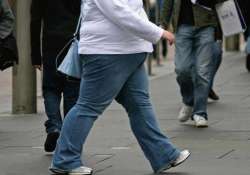Healthy diet, exercise may benefit obese adults with diabetes
New York: Healthy diet and routine physical exercise can help older overweight and obese adults gain benefits, reveals a study, adding it can improve glucose control, body composition, physical function and bone quality. Diet and

New York: Healthy diet and routine physical exercise can help older overweight and obese adults gain benefits, reveals a study, adding it can improve glucose control, body composition, physical function and bone quality.
Diet and exercise, known to benefit patients with type 2 diabetes, are controversial treatments for older adults due to concerns over frailty and age-related loss of muscle mass.
"Type 2 diabetes is highly prevalent in older adults due to the physical inactivity associated with advancing age as well as the obesity epidemic," said lead study author Alessandra Celli from Baylor College of Medicine in Houston, Texas.
"Obesity worsens the metabolic and physical complications of aging that impair quality of life," Celli added.
No specific guidance is available for effectively modifying the lifestyle of adults with diabetes who are 65 years of age and above.
Researchers examined the effects of behavioural weight-loss diet therapy and exercise training in older overweight and obese adults with type-2 diabetes.
Over the past six months, they have been randomly assigning volunteers between 65 and 85 years of age to receive either intensive or limited interventions.
Participants in the intensive intervention group attend 90-minute aerobic and resistance exercise classes three times a week as well as a diet class once a week where they learn healthier eating habits.
Control group participants are not given any exercise programme and receive only once-a-month diabetes educational sessions.
At the six-month mark, all study participants have preserved their lean body mass; but the intervention group's body weight and fat mass have dropped more than the control group's and the intervention group's physical performance test and peak aerobic capacity have improved more.
Glycated hemoglobin (HbA1c), an indicator of blood glucose control, has improved more in the intervention group.
Trabecular bone score -- a measure of bone texture that helps predict fracture risk -- has improved among those receiving the intervention but not among the controls.